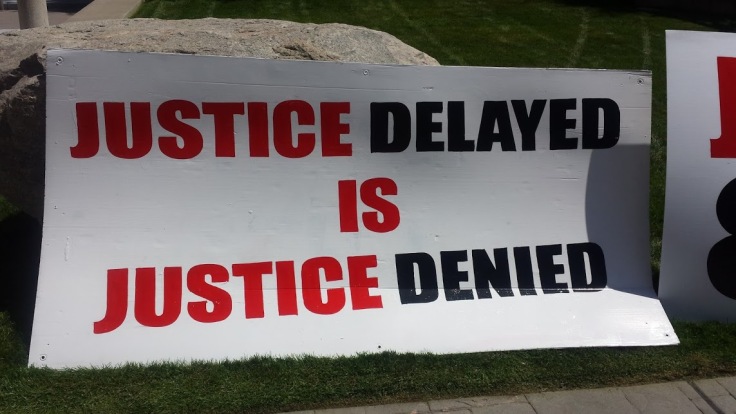Due Process and Natural Justice must be seen to be part of the very fabric of the Disciplinary Procedures of the Labour Party. The fact that they are not has caused alarm across social media. It HAS to be addressed if trust is to be regained.
It has astonished all who have seen the way the Rule Book and the Procedures were (and continue to be) applied. It is clear to us and anyone we speak to that we need to ensure that this can never happen again.
It is not enough for a passing announcement by the NEC saying they are agreed that it can`t happen again. Unless and until there are safeguards put in place there is nothing to stop the NEC allowing this or similar to happen again.
Each branch and CLP is invited to address this issue and demand that Due Process and Natural Justice is enshrined in every aspect of the Party`s dealing – but most especially concerning the Compliance Unit and the Disciplinary Procedure. We invite every L.P.member reading this, and the letter and statement below, to contact your branch and ask that this issue is put on the next agenda.
The issues were not discussed and the only responses we have received is an automatic acknowledgement and one saying we are not affiliated. Saying we are not affiliated is something of a red herring. We sent a collective letter in order to be helpful by not having 900 members who have been affected by this writing separately. It seems we may be left with no other option.
Here is the letter and statement sent out to the NEC on Monday 21st November in time for the NEC `Awayday` on the 22nd when it was assumed they would put aside at least some time to address the issues and concerns of those members subjected to such an atrocious application of the Rule Book and Procedures for Disciplinary administration.
Letter and Statement to the NEC
Please raise this in your next branch meeting. Email your branch secretary and ask for it to be included on the Agenda for discussion at the next meeting and to have a vote to send it with a covering letter stating the Branches position on Natural Justice and due Process within the L.P. and specifically with concern for the Disciplinary Procedures.
Please do let us know how you got on. Which branches and CLPs discussed it and what happens – either comment below or join this FB group and post about your experience with raising the issue of Natural Justice in the Labour Party:
Let us know how YOUR campaign for Natural Justice in the Labour Party is doing.
This is one part of the Rule Book that is a good reference if you are a new member of the Labour Party when you ask that this concern is put on the agenda:
Appendix from the rule book to support resolution: Appendix 2 1.A.iii The party in anxious to encourage the recruitment of new members and to ensure that all new members are properly welcomed into the party and opportunities offered to enable their full participation in all aspects of party life.

A Critique of the Disciplinary Rules of the Labour Party by
Duncan Shipley Dalton LL.B(Hons) LL.M CPLS MPA (Harvard) Barrister-at-Law Labour member Southampton Itchen CLP
A Legal Look at the Labour Party Rule Book

This blog is part of our campaign to demand the Labour Party embed the principles of NATURAL JUSTICE at the heart of the Party – starting with the Rule Book and specifically the Disciplinary Procedures
NO CONFIDENCE IN IAIN MCNICOL
A motion of no-confidence in Mr McNicol over the wave of suspensions and expulsions that prevented tens of thousands of members voting in the recent leadership election on top of those excluded on the basis of an arbitrary date, was debated at the CLP’s monthly meeting, with passion on both sides of the debate but in a completely comradely fashion.
An attempt was made to neuter the motion by proposing a drastic amendment to it, effectively removing all but a couple of lines, including the no-confidence motion, turning it into a mere expression of concern and request for clarification – but this was rejected by almost all those present.

A motion of no-confidence in Mr McNicol over the wave of suspensions and expulsions that prevented tens of thousands of members voting in the recent leadership election on top of those excluded on the basis of an arbitrary date, was debated at the CLP’s monthly meeting, with passion on both sides of the debate but in a completely comradely fashion.
An attempt was made to neuter the motion by proposing a drastic amendment to it, effectively removing all but a couple of lines, including the no-confidence motion, turning it into a mere expression of concern and request for clarification – but this was rejected by almost all those present.
Those against the motion argued that members should ‘move on’ and let bygones be bygones in order to concentrate on attacking the Tories.
Those for argued that this was missing the point – that taking the fight to the Tories properly is hampered as long as people prepared to exploit and subvert proper process to deprive members of their right to vote are left in a position to do so in future and that this would discourage new members from joining, or from full, enthusiastic participation if they do join.
The full motion is available at the end of this article, but the crucial part reads as follows:
As general secretary, Mr McNicol has legal responsibility for the Labour Party and must ensure that everything done by the party is legal. He has not ensured that the processing of complaints against members has achieved an acceptable standard and – because this directly relates to the leadership ballot – this means he has not ensured that the processing of ballots to members has been carried out properly.
We therefore call for a vote of no confidence in Mr McNicol as general secretary of the Labour Party. The CLP resolves for the process of suspensions/expulsions to be transparent, fair, clear and completed in reasonable timescales due to members not being able to particpate in meetings and the distress and damage to members mental health.
The result of the vote was ‘against’ 14, ‘for’ overwhelming (i.e. no full count of the ‘for’ votes was taken because the vote was so clearly carried. Ms Eagle voted against, as is to be expected.
